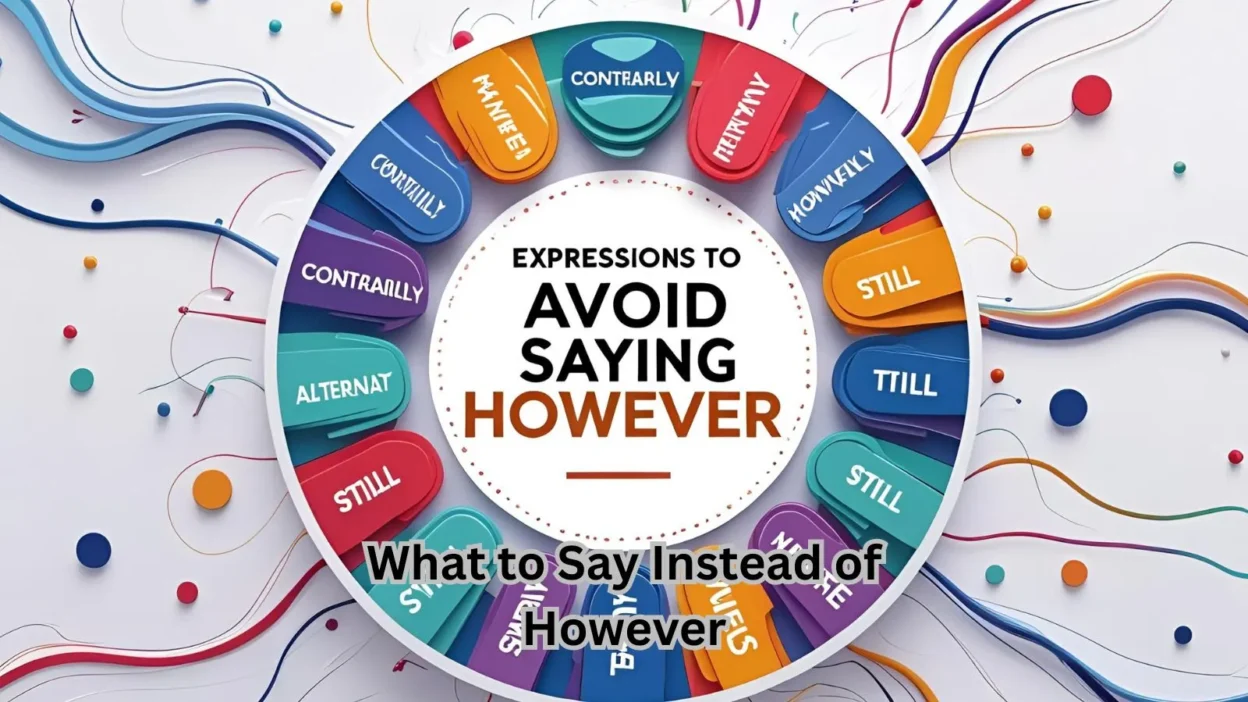Words like “however” are often used when we want to change direction in our thoughts. It’s a common word, especially in writing, but sometimes it can sound too formal, too stiff, or even a bit cold in casual conversation.
That’s why many people look for what to say instead of however—especially when speaking or writing in a more natural, warm tone.
Think about this: you’re explaining something, and then you want to show a contrast or introduce a different idea. “However” works—but it can feel out of place. Wouldn’t it be nice to have simpler, softer, or even friendlier options?
In this post, we’ll explore different phrases you can use instead of “however”, with real-life examples and clear guidance. Whether you’re chatting with a friend, writing an email, or posting online, these alternatives to “however” will help your words flow more naturally.
1. Why “However” Might Sound Too Formal
“However” isn’t wrong. But in everyday talk or relaxed writing, it can feel a little stiff or serious.
Example:
Formal: “I like the idea. However, I’m not sure it will work.”
Sounds like a school paper, right?
💬 Instead of sounding like a report, you might want your words to feel friendly or easygoing. That’s why it’s good to explore other options.
2. Try “But” – The Classic and Simple Choice
“But” is the easiest and most common way to show contrast. It’s natural, short, and familiar.
Example:
Instead of: “I wanted to join you. However, I was too busy.”
Try: “I wanted to join you, but I was too busy.”
👍 It sounds more real and conversational. Just be sure not to overuse it too often in one message.
3. Use “Though” or “Even So” for a Softer Tone
“Though” and “even so” offer a gentle way to shift ideas without sounding too formal.
Example:
“I’m tired. Even so, I’ll finish the project.”
“It was raining. I went out, though.”
🌤 These phrases show flexibility and warmth, making your message feel more personal.
4. Try “Still” or “Yet” to Show a Twist
“Still” and “yet” are great for adding a little surprise or unexpected turn in the sentence. They work well in both talking and writing.
Example:
“I didn’t study much. Still, I passed the test.”
“She didn’t want to leave. Yet, she walked away.”
🎯 These words add contrast without feeling stuffy.
5. Go with “On the Other Hand” or “That Said”
These are great when you want to show both sides of something or explain a different view.
Example:
“I love city life. On the other hand, I miss nature.”
“The book was long. That said, it was worth the read.”
👐 These phrases are slightly more formal than “but,” but less stiff than “however.”
6. Use “Instead” When Showing a Clear Change
“Instead” works when you want to say one thing didn’t happen, and something else did.
Example:
“I didn’t go out. Instead, I stayed home and relaxed.”
“She didn’t reply by phone. Instead, she sent an email.”
💡 It’s direct and useful when replacing one idea with another.
7. When It’s Okay to Use “However”
There’s nothing wrong with using “however” if your writing needs a more formal tone—like a school paper or business report.
Just be sure it fits the setting. In casual writing or conversation, it may feel out of place. That’s when knowing what to say instead of however becomes helpful.
Final Thoughts
Finding the right words is like choosing the right outfit—it depends on where you are and who you’re with. Learning what to say instead of however gives you more choices for clear, kind, and easy conversation. From “but” to “even so,” you now have simple, helpful ways to say what you mean—without sounding too formal or stiff.
So next time you feel a “however” coming, try one of these friendlier words instead! ✨




